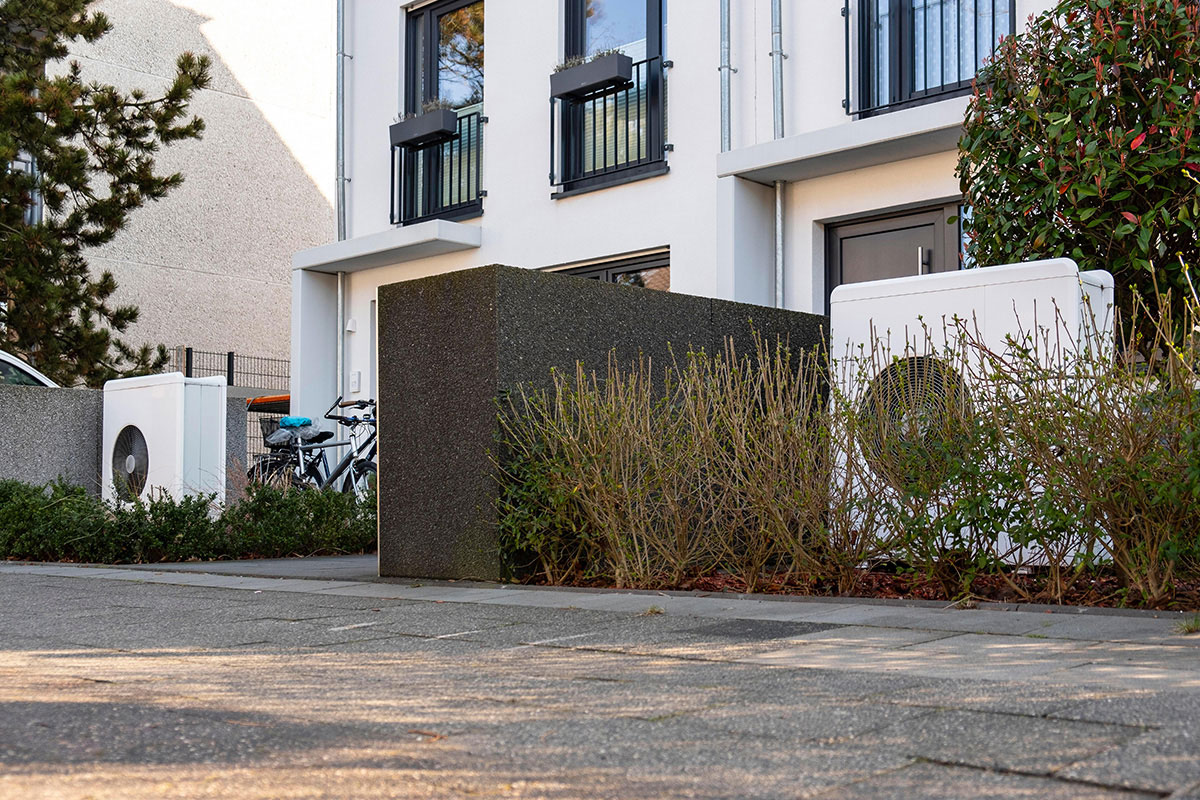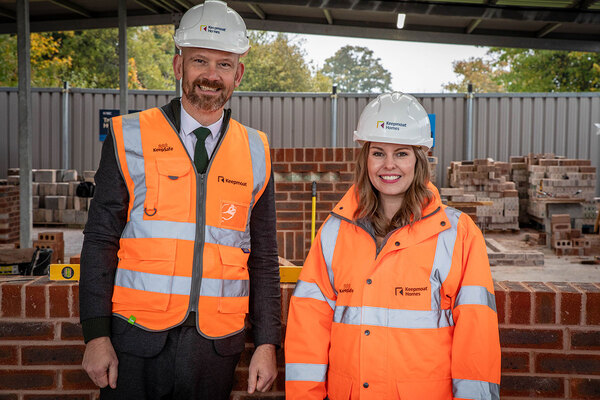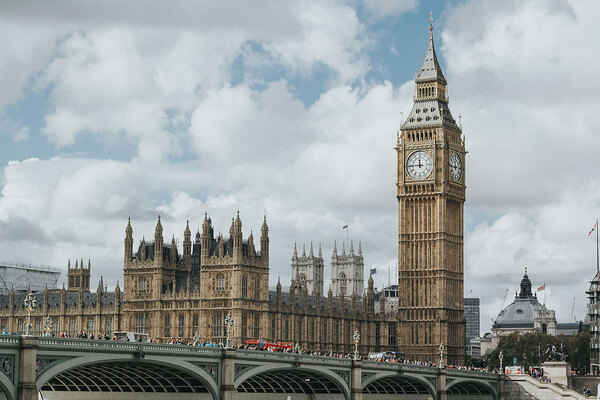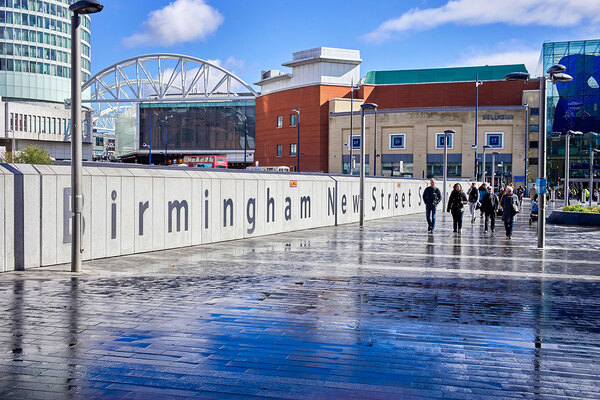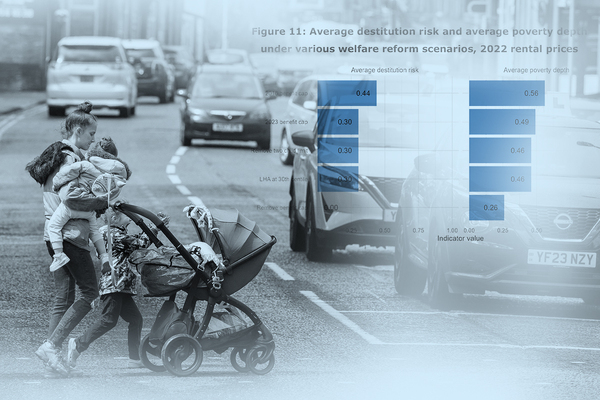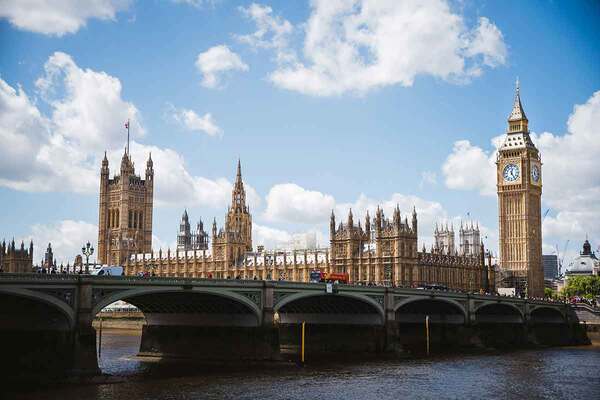You are viewing 1 of your 1 free articles
What role is housing playing in the US election?
Inside Housing columnist Jules Birch looks through the Harris and Trump campaigns to find out what role housing is playing in the American election and what the candidates are proposing
Housing has gained rare salience in the US presidential election, as Americans battle rising rents and mortgage costs.
The contest between Kamala Harris and Donald Trump is a chance for British observers to look through the looking-glass and see how housing is done across the Atlantic.
The emphasis on the ‘American dream’ of homeownership will be familiar and a broad alignment is discernible between the Democrats and Labour, and the Republicans and Conservatives.
But this is also a very different world, in which finance is dominated by tax credits and housing vouchers rather than grant and housing benefit. And it is also one in which race and immigration form a much clearer political dividing line.
The Harris campaign has promised more on housing, with a headline pledge to add three million new homes to the housing stock over the next four years.
That’s an increase of almost 50% on housebuilding delivery in the US over the past four years and would take total annual output to more than two million a year.
Adjusting for population, that is the equivalent of 333,000 a year for England – also an increase of 50% on current levels and 10% more than the Labour government’s target of 1.5 million new homes over five years.
Funding would come mostly from tax incentives to developers to build starter homes for first-time buyers and affordable homes for rent, along with a fund for innovation in construction and cuts in planning red tape.
“Project 2025 has given the Harris campaign plenty of ammunition. The campaign has presented Project 2025’s proposal to privatise the federal mortgage guarantee agencies Fannie Mae and Freddie Mac as likely to increase mortgage costs by £1,200 a year for the average homeowner”
Ironically, these are exactly the sort of federal tax breaks that enabled Mr Trump’s father Fred to build the property empire that enabled him to bequeath a fortune to his son Donald (who subsequently squandered most of it).
Further supporting homeownership, Ms Harris would give $25,000 grants in down-payment support to around four million first-time buyers. At a total cost of $100bn, that’s quite some help to buy.
There would also be action to stop Wall Street investors buying up single-family homes in bulk and to prevent the use of algorithmic price-setting tools by landlords to jack up rents.
Some of these measures resonate in a UK context, begging the questions of why tax credits have never taken off here and why investment by many of those same Wall Street companies here is generally seen as benign.
The Trump campaign is much less detailed about its plans to (inevitably) “make the American dream affordable again” by reducing housing, education and healthcare costs.
First-time buyers would be helped by a combination of lower mortgage rates, releasing federal land for construction, tax incentives and cuts in “unnecessary regulations that raise housing costs”.
Much of that would be completely familiar to deregulatory Conservatives over here, but the platform also makes great play of ending “luxury housing and taxpayer benefits for illegal immigrants” and using the proceeds to help homeless veterans.
That’s as detailed as it gets. However, lurking in the background is Project 2025, a programme for power put forward by the right-wing thinktank The Heritage Foundation that makes the equivalents put forward here in the run-up to the 2010 election pale by comparison.
The thinking here is to give Mr Trump the clear agenda he lacked in his first term as president because he did not expect to win.
“A Harris victory would put housing front and centre of her agenda and it might well make our parties look again at the politics of first-time buyer assistance and the economics of tax credits”
Project 2025 amounts to an instruction manual for eliminating neutrality in the government machine, seeing this in almost Leninist terms as it calls for “the immediate redelegation of authority to a cadre of political appointees” at the Department of Housing and Urban Development (HUD).
The programme is overtly hostile to any idea of what we might call social housing as it argues that: “HUD programs tend to perpetuate the notion of bureaucratically provided housing as a basic life need and, whether intentionally or not, fail to acknowledge that these public benefits too often have led to intergenerational poverty traps, have implicitly penalised family formation in traditional two-parent marriages, and have discouraged work and income growth, thereby limiting upward mobility.”
Immediate actions would include repealing climate change initiatives and affirmative action for fair housing, and eliminating Biden-era housing funds.
Housing First policies would be ended “so that the department prioritises mental health and substance abuse issues before jumping to permanent interventions in homelessness”.
A legal agreement that protects immigrant children while in US custody would be replaced by nationwide standards that “focus on meeting human needs and should allow the large-scale use of temporary facilities (for example, tents)”.
Meanwhile, all non-citizens, including “mixed-status families” (where, for example, children born in the US are citizens but their parents are not) would be prohibited from living in federally assisted housing.
In the longer term, HUD would (you guessed it) “encourage competition and choice for renters”, with all non-elderly, able-bodied tenants required to work and housing vouchers preferred over site-based subsidies.
However, enthusiasm for competition and deregulation only goes so far, with decisions about zoning laws and regulations left to localities. In an echo of Conservative hypocrisy over planning reform here, it opposes any efforts to weaken single-family zoning (which might increase housing density and make homes more affordable).
Project 2025 has given the Harris campaign plenty of ammunition. The campaign has presented Project 2025’s proposal to privatise the federal mortgage guarantee agencies Fannie Mae and Freddie Mac as likely to increase mortgage costs by £1,200 a year for the average homeowner and enrich Mr Trump’s chums on Wall Street.
As the days count down to 5 November, all the polls suggest that the presidential election will be extremely close.
A Harris victory would put housing front and centre of her agenda and it might well make our parties look again at the politics of first-time buyer assistance and the economics of tax credits.
Whether a triumphant Mr Trump would be interested in anything beyond his own interests and grudges very much remains to be seen, but a housing-hostile agenda is waiting for him if he wants to take it up.
Jules Birch, columnist, Inside Housing
Sign up for our daily newsletter
Already have an account? Click here to manage your newsletters



